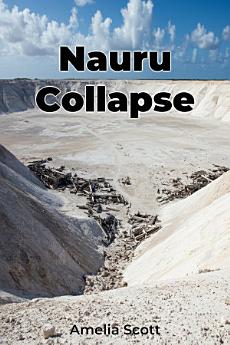Nauru Collapse
Mar 2025 · Publifye AS
Ebook
62
Pages
family_home
Eligible
info
reportRatings and reviews aren’t verified Learn More
About this ebook
Nauru Collapse tells the cautionary tale of the Pacific island nation of Nauru, charting its extraordinary rise and devastating fall. Fueled by vast phosphate deposits from bird droppings, Nauru experienced a meteoric economic boom, becoming one of the wealthiest nations per capita. However, this prosperity was short-lived. The book examines how short-sighted resource management, environmental degradation, and poor investment decisions led to an economic collapse, leaving the island and its people struggling with the consequences of resource extraction.
The book progresses by detailing the initial exploitation of phosphate, analyzing the factors leading to Nauru's decline, and exploring the social and political ramifications of the collapse. It highlights that Nauru's plight isn't just mismanagement; it's a systemic issue where short-term profits trumped sustainability. For example, while Nauru once boasted a high GDP, the environmental costs of mining, such as the destruction of arable land, were largely ignored.
This comprehensive study uses archival documents, economic data, and interviews to offer a nuanced understanding of Nauru's societal transformation and serves as a valuable lesson for other small island nations facing similar challenges in a globalized world.
Rate this ebook
Tell us what you think.
Reading information
Smartphones and tablets
Install the Google Play Books app for Android and iPad/iPhone. It syncs automatically with your account and allows you to read online or offline wherever you are.
Laptops and computers
You can listen to audiobooks purchased on Google Play using your computer's web browser.
eReaders and other devices
To read on e-ink devices like Kobo eReaders, you'll need to download a file and transfer it to your device. Follow the detailed Help Center instructions to transfer the files to supported eReaders.








